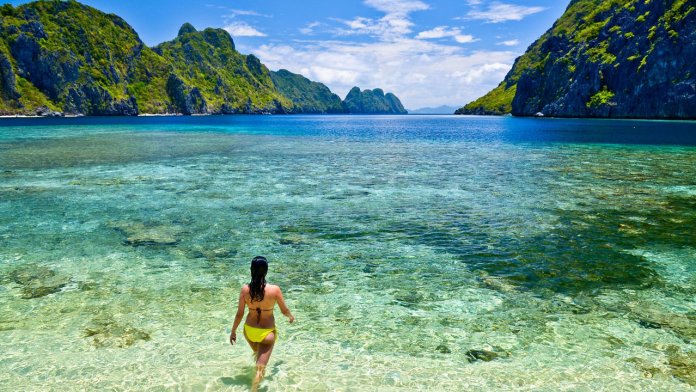All life on our planet depends on water. Marine and freshwater ecosystems fulfill many vital functions, from maintaining local and global climate balance to preserving biological diversity.
But when we think of the sea on which we plan to spend a vacation, we usually do not take into account its importance to the planet. The most important thing is the purity of the water. After reviewing reports from the European Environment Agency (EEA), Guinness World Records and other sources, we found for you the cleanest sea... Even as many as 10 such seas!
10. Adriatic Sea
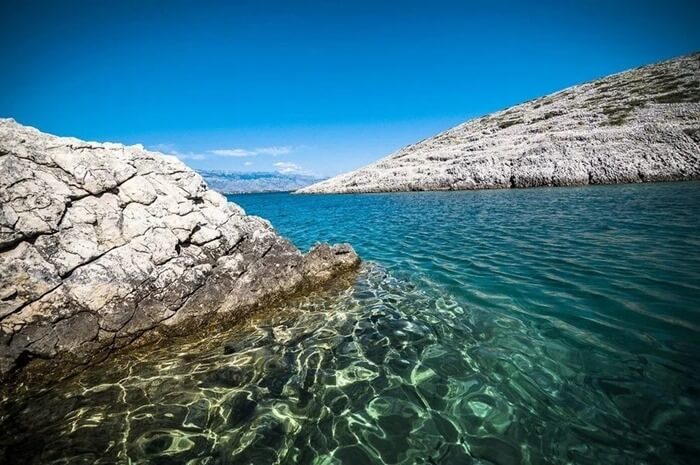 The purity of this semi-enclosed sea, which is part of the Mediterranean, directly depends on the approach to ecology of the coastal city. For example, the Adriatic Sea off the coast of Venice cannot be considered clean, since shipping, transport, agriculture, and sewage from various industries contribute to water pollution.
The purity of this semi-enclosed sea, which is part of the Mediterranean, directly depends on the approach to ecology of the coastal city. For example, the Adriatic Sea off the coast of Venice cannot be considered clean, since shipping, transport, agriculture, and sewage from various industries contribute to water pollution.
In 2019, we recommend you the beaches of the Adriatic, located in the Croatian region of Dalmatia. According to a study by the Split-Dalmatia County Public Health Institute, conducted on all 964 beaches, 98% of local beaches are rated “excellent” in terms of microbiological parameters.
9. White Sea
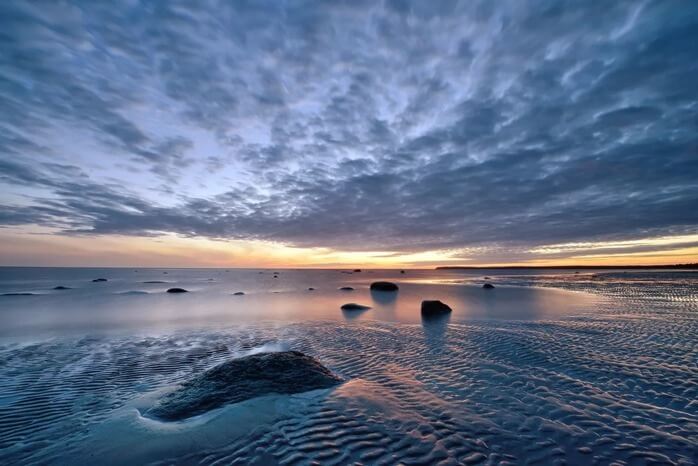 And here is the answer to the question, which sea is the cleanest in Russia. The White Sea belongs to the basin of the Arctic Ocean, and although the waters of this hydraulic system are subject to various industrial pollution, they are still quite clean compared to other Russian seas.
And here is the answer to the question, which sea is the cleanest in Russia. The White Sea belongs to the basin of the Arctic Ocean, and although the waters of this hydraulic system are subject to various industrial pollution, they are still quite clean compared to other Russian seas.
The best time for “savages” to rest on the White Sea is the end of July. At this time, the water warms up to 18-20 degrees. Tourists highly praise their vacation in Umbra, with large sandy beaches and shallow sea in the Black River region. But there is no service for tourists there and it is advisable to take your own products (as well as a brazier and a soup kettle).
And if you need a well-equipped and clean beach, then there is no better Yagrinsky beach.
8. Barents Sea
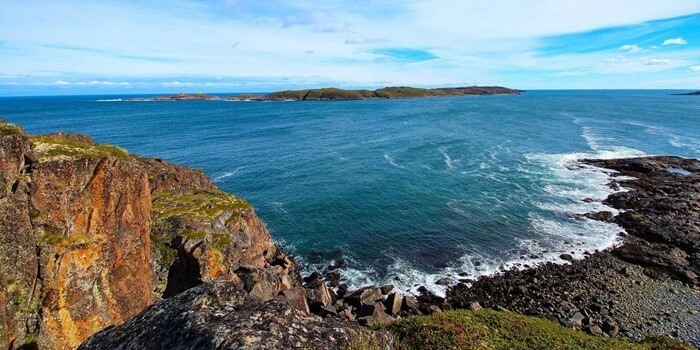 Included in the top three of the cleanest seas of Russia (along with the White and Kara seas) according to one of the expeditions of the Murmansk Marine Biological Institute. Scientists annually conduct expeditionary marine and coastal research in different parts of the Russian seas.
Included in the top three of the cleanest seas of Russia (along with the White and Kara seas) according to one of the expeditions of the Murmansk Marine Biological Institute. Scientists annually conduct expeditionary marine and coastal research in different parts of the Russian seas.
Despite the harsh climate of the Barents Sea, tourist infrastructure is slowly growing near it. "Mecca" for those who wish to temper the body (in summer the water warms up to 12 ° C), fishing and admiring the long sunrises and sunsets is Teriberka.
7. Mediterranean Sea
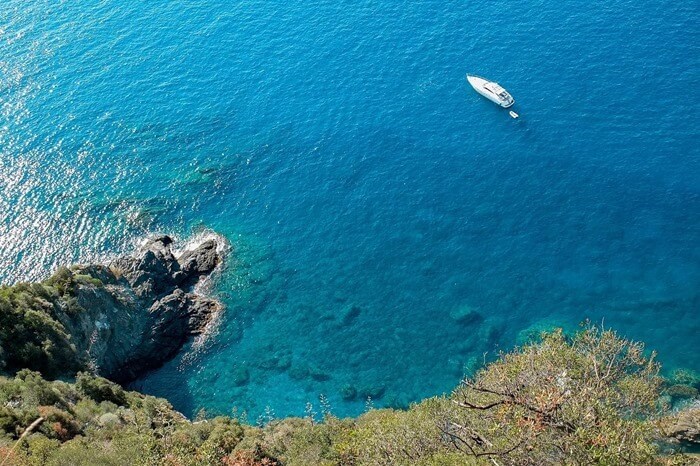 At one time, the famous oceanologist Jacques Yves Cousteau called the Mediterranean Sea "a garbage dump." Fortunately, it is not so along its entire length. The largest amount of waste enters the Mediterranean Sea from the coastal regions with developed industry - Naples, Alexandria, Tunisia, Izmir, etc.
At one time, the famous oceanologist Jacques Yves Cousteau called the Mediterranean Sea "a garbage dump." Fortunately, it is not so along its entire length. The largest amount of waste enters the Mediterranean Sea from the coastal regions with developed industry - Naples, Alexandria, Tunisia, Izmir, etc.
But many Spanish and Greek beaches, located on the shores of the Mediterranean Sea, are marked with a "blue flag" for their cleanliness. These include, for example, Playa de Muro on Mallorca, Navagio Bay and Elafonisi Beach.
And EEA experts noted the highest level of water purity at Maltese beaches. Malta's impressive 99 percent bathing water is rated 'Excellent'.
6. Caribbean Sea
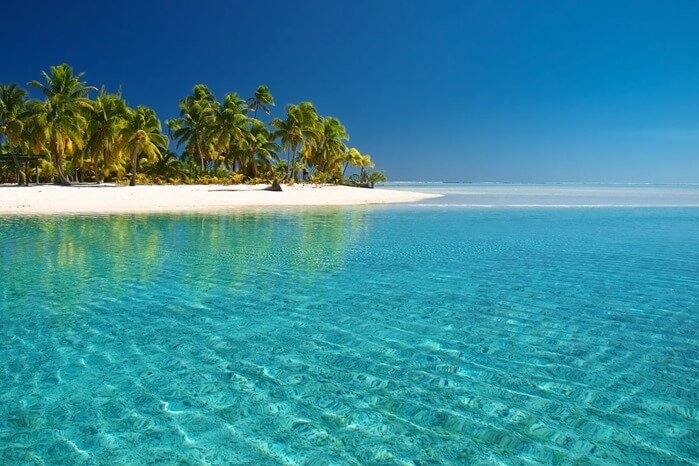 The Cartagena Protocol, signed by 13 countries in 1990, prohibits human activities aimed at destroying the Caribbean environment. This does not mean that this area is completely free from pollution, but it is significantly cleaner than most other seas.
The Cartagena Protocol, signed by 13 countries in 1990, prohibits human activities aimed at destroying the Caribbean environment. This does not mean that this area is completely free from pollution, but it is significantly cleaner than most other seas.
A warm climate and beautiful beaches make the Caribbean Sea one of the most popular resort areas in the world.
In 2019, we recommend visiting such Caribbean beaches as Ram Point in the Cayman Islands, Varadero in Cuba or Bavaro in the Dominican Republic. They all have great reviews on Tripadvisor and other travel sites.
5. Arabian Sea
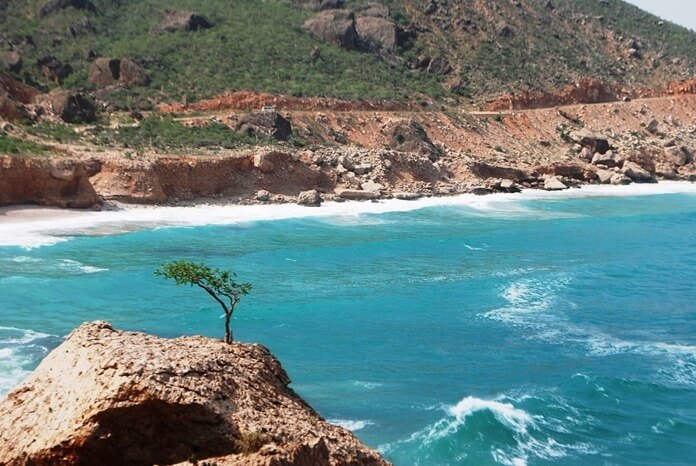 This small sea suffers mainly from oil and oil products pollution. However, off the coast of the Maldives and near the popular ecotourism destination, Astola Island in Pakistan, the water is safe and clean.
This small sea suffers mainly from oil and oil products pollution. However, off the coast of the Maldives and near the popular ecotourism destination, Astola Island in Pakistan, the water is safe and clean.
4. Red Sea
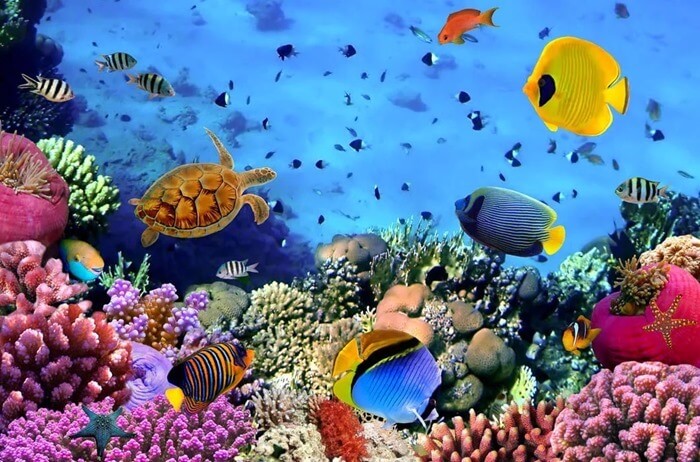 Due to the large number of fish, microorganisms and other inhabitants, this sea quickly "digests" most of the pollution. Even oil, which is regularly spilled by tankers sailing along the Suez Canal.
Due to the large number of fish, microorganisms and other inhabitants, this sea quickly "digests" most of the pollution. Even oil, which is regularly spilled by tankers sailing along the Suez Canal.
An important factor affecting the level of pollution in the Red Sea is the absence of rivers that flow into it. But exactly the dirtiest rivers in the world supply the world's oceans with 90% of plastic waste.
The best places to stay on the Red Sea are the popular paid Hurghada Dream Beach, Sharm El Maya Bay, Mahmeya Beach on Big Giftun Island and Abu Dabab Beach.
3. Aegean Sea
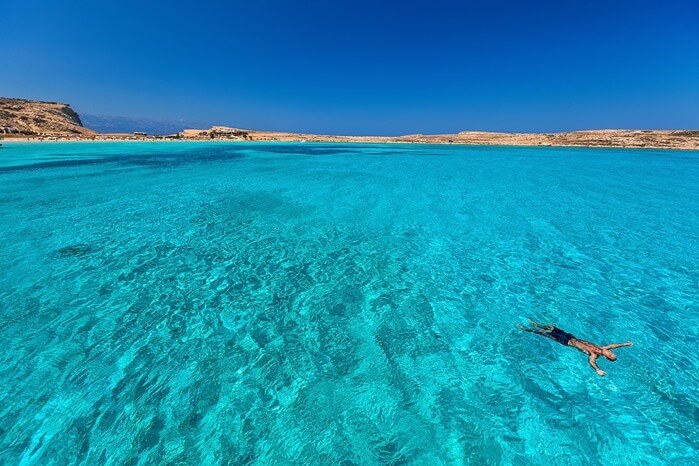 One of the cleanest seas on the planet, however, even here it was not without a "but": it is such only off the coast of Greece.
One of the cleanest seas on the planet, however, even here it was not without a "but": it is such only off the coast of Greece.
But off the Turkish coast, the situation is worse due to the large amount of wastewater. Because of this, the phenomenon of "red tide" is often observed: layers of water rich in nitrogen and phosphorus rise from the depths, causing harmful blooms of microscopic algae. Swimming in such water is unhealthy.
However, on the "Turtle Coast" Iztuzu - a pearl popular Turkish resort Dalyan - swimming is quite safe. This is one of the cleanest beaches in Turkey. Another clean, quiet and safe Turkish beach with turquoise water is Olympos in Cirali.
2. Dead Sea
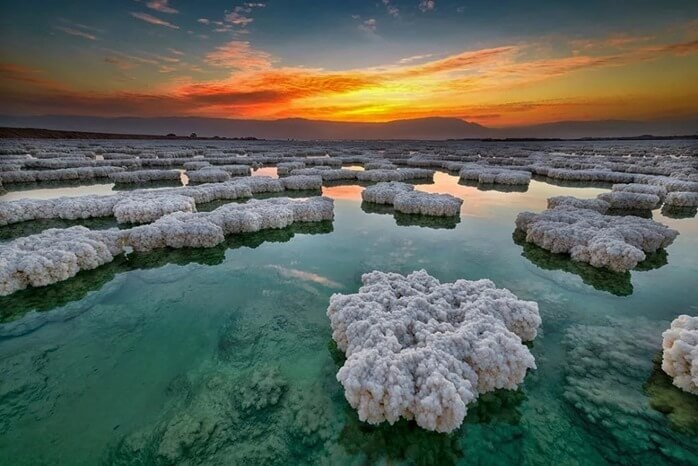 This sea is one of the saltiest bodies of water on Earth. Its salinity is 300-310%, and in some years it rises to 350%. However, you can swim in the Dead Sea all year round. It doesn't matter if you can swim or not, the oily and incredibly salty water perfectly keeps your body afloat (you can even sit "in Turkish"). The optimal time for swimming is 20 minutes a day.
This sea is one of the saltiest bodies of water on Earth. Its salinity is 300-310%, and in some years it rises to 350%. However, you can swim in the Dead Sea all year round. It doesn't matter if you can swim or not, the oily and incredibly salty water perfectly keeps your body afloat (you can even sit "in Turkish"). The optimal time for swimming is 20 minutes a day.
The "sterility" of the Dead Sea is explained, you guessed it, by its salinity. Neither fish nor living organisms, except for tourists, are found here. And industrial waste is not thrown here. But the waste of human life is found.
The best views of the Dead Sea await you on Mount Masada (car available) or from your hotel balcony in the resort town of Ein Bokek.
1. Weddell Sea
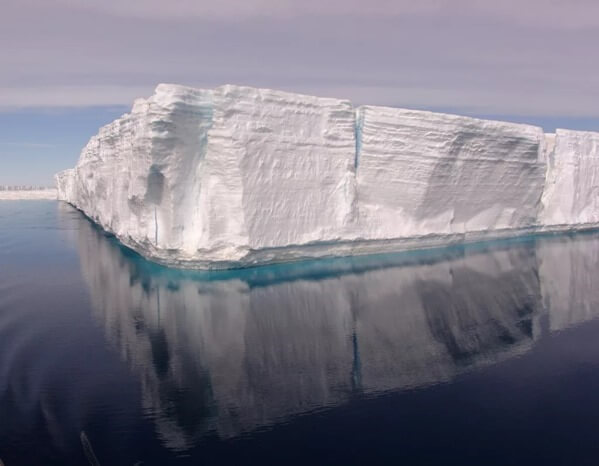 To answer the question which sea is the cleanest in the world, we turned to the Guinness Book of Records. And the answer was - the Weddell Sea, one of the oldest and least explored seas on Earth. It is located off the coast of West Antarctica, and is not very suitable for swimming, because most of the year it is covered with drifting ice floes and icebergs.
To answer the question which sea is the cleanest in the world, we turned to the Guinness Book of Records. And the answer was - the Weddell Sea, one of the oldest and least explored seas on Earth. It is located off the coast of West Antarctica, and is not very suitable for swimming, because most of the year it is covered with drifting ice floes and icebergs.
In 1986, German scientists from the Polar Star ship recorded the greatest depth of relative transparency in the Weddell Sea. It was 79 meters, which is comparable to the transparency of distilled water. Of course, a lot of time has passed since then, but given the small number of people visiting the area, as well as the lack of businesses that poison the water, the Weddell Sea still holds the title of "the cleanest sea in the world."

